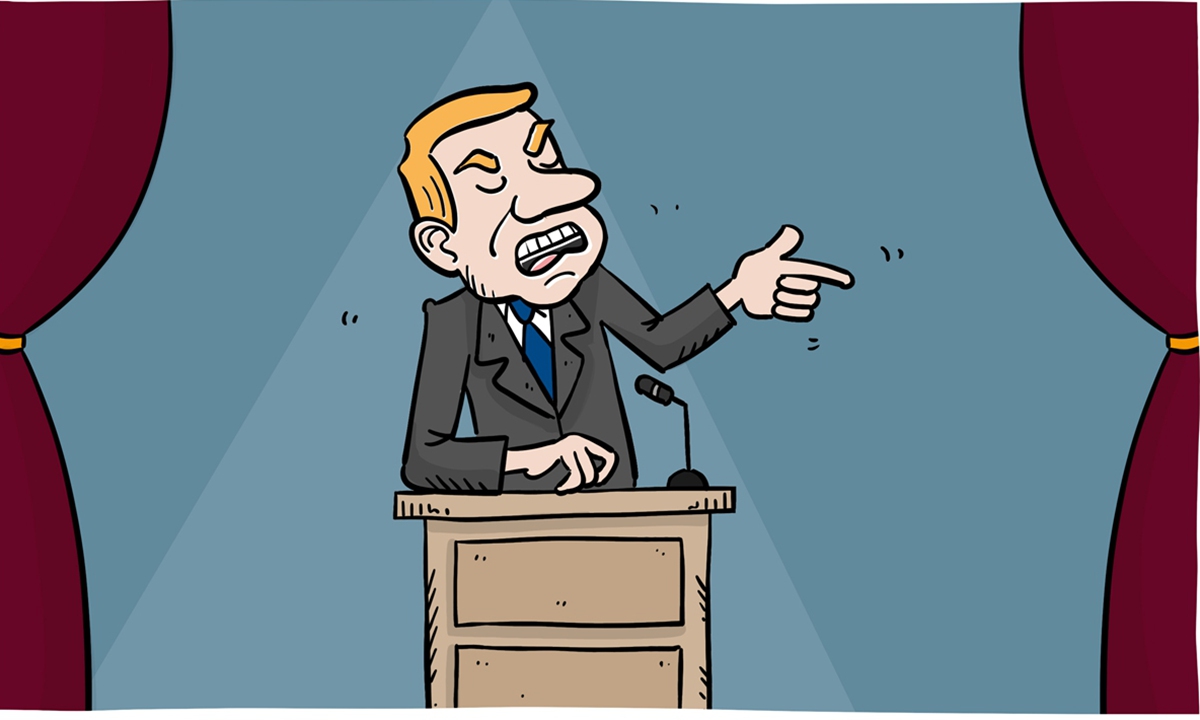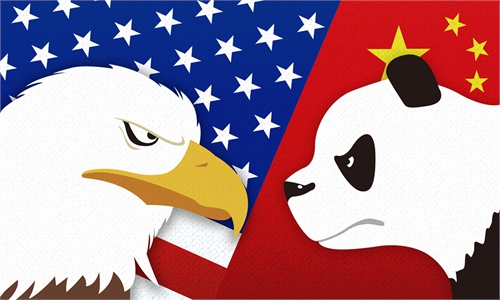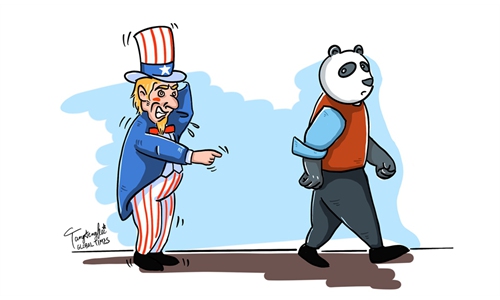
Illustration: Chen Xia/GT
On Saturday, the so-called Media Freedom Coalition signed a statement to express its strong concerns about the closure of the Apple Daily newspaper and "the suppression of freedom of expression" from both the Chinese central government and the Hong Kong regional government. This statement was signed by 21 countries, including the US that obviously led this action. The undersigned members of the coalition are, again, the handful of Western countries that Washington keeps making use of to mislead the world in the name of the "international community."During the past two years of turmoil in Hong Kong, Apple Daily had played the disgraceful role of the base camp of public opinion that mobilized resistance in Hong Kong, as well as a fundraising channel for radical forces in the city. The outlet had greatly exceeded the information function of the media. Some people from Apple Daily had been prosecuted under law, while some of the newspaper's funds were frozen. Eventually, Apple Daily announced its closure because it was financially in trouble. Those who interfered in Hong Kong's affairs from the West have deliberately kept the whole story secret. Instead, they have brutally labeled the Chinese central government and the Hong Kong regional government as "suppressors of press freedom."
This is a war of words against China, but with diminishing influence. Chinese society has already gotten used to it, and many Hong Kong people have come to realize that the intervention from the West is far less effective than expected. The US-led Media Freedom Coalition statement is not imposing any real pressure on China. It is becoming a "party for one."
On the other hand, the US has already established a path of rallying its allies to take a stand against China, and there is nothing new in its anti-China actions. What the US really aims to do is to gain more experience for the West to work together against China and upgrade their offensive gradually. As for the West, its real goal is to gradually institutionalize the policymaking channel of its China policy, until one day the West will be able to become completely united against China on a certain key issue.
What happened in Hong Kong perfectly demonstrates the ideological division between China and the West. But it plays such a small role in the relationship between China and the West. Waving the banner of "human rights," the US has attracted some other Western countries to engage in its anti-China agenda, but it is difficult to find such a relatively efficient interaction in other areas.
It is quite another thing for the US to turn the 21 signatories of the latest statement into a comprehensive anti-China coalition that includes an economic boycott of China.
The US has rallied its allies to pressure China on human rights issues. On the one hand, it reflects that it still has strong mobilization power in the West. On the other hand, such joint pressure has been repeated over and over again on issues such as "human rights" and "freedom of the press." Their united front could hardly go outside of the Western circle, which exposes the limitations of the US' international mobilization ability.
One reason for this limitation is that US accusations against China are not reasonable at all. Its logic of stigmatizing China plays well only in the small Western circle. Most countries in the world can understand it is using flimsy arguments and perverse logic to describe China's reality and its geopolitical purpose is picking on China. The second reason is that as it has fewer resources to "buy" followers, Washington will have to pay the price for countries to drive them to break with common sense and embrace US attitudes. But today the US is becoming more tightfisted.
China will persist in seeking truth from facts and following nature's course. The extreme situation in Hong Kong had to be dealt with, so we acted in accordance with the Basic Law.
China is resolute and vigorous in pursuing equal and mutually beneficial cooperation with other countries.
Such a great power that is friendly to the outside world and promotes order and prosperity at home cannot be resisted by the world. We bring benefits to the world. There is no interference, threat or destruction from China. The US is trying to pull all countries against China, but why should most of those countries follow the US for the interests of the US?
The biggest possibility is that some Western countries follow the US' lead on issues such as "human rights," which they are also interested in. They not only mail it in with the US and maintain the unity of the West, but also validate their own existence at the same time. The statement by the 21 countries appears to be one of their "regular routines."


